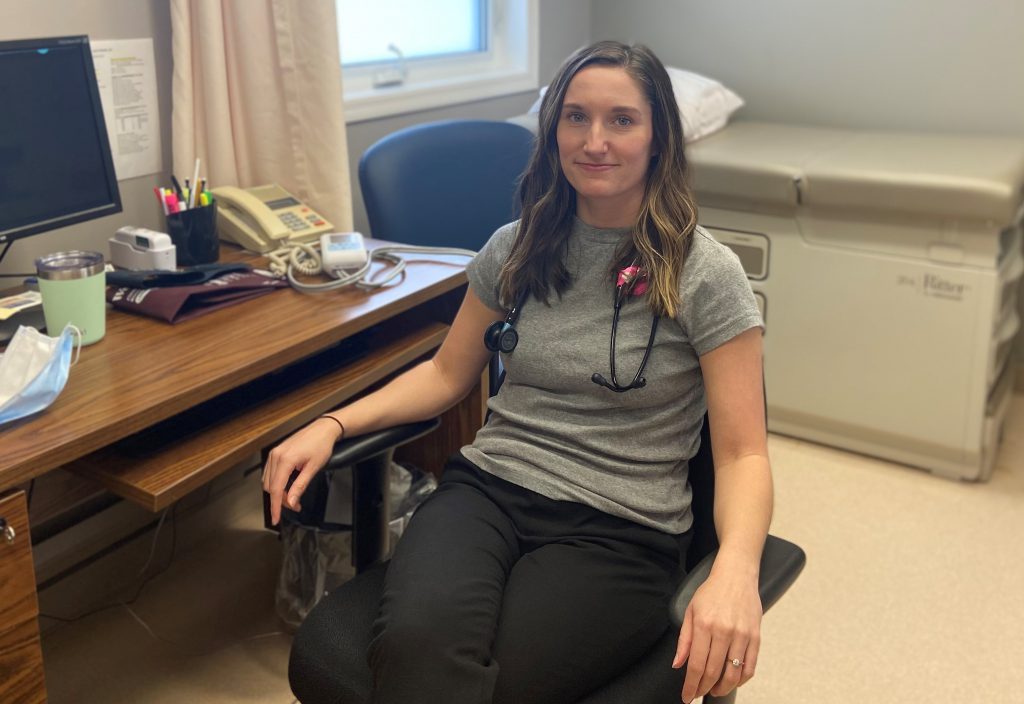
While earning her master’s degree in UM’s nurse practitioner program, Kristy DuGray explored different topics in Indigenous health care through her coursework.
When it came time to choose where to go for her clinical placement, she knew she wanted to support Indigenous health.
At first, she didn’t feel that any of the clinical placements offered were exactly what she was looking for. Luckily, Dr. Wanda Phillips-Beck, the Indigenous Nursing Research Chair, had established a new opportunity for nurse practitioner students to split their placements between an Indigenous community and Northern Connection Medical Centre in Winnipeg.
“It just felt like the perfect placement for me where I could further my skills,” DuGray says. “I think one of the most important things we can do as health-care providers in Manitoba is to seek out education on Indigenous health.”
DuGray began her placement in Hodgson, Man., at Percy E. Moore Hospital. The small facility allowed her to work in multiple specialties, seeing outpatients as well as working in the emergency room. She gained perspective on delivering care to patients from nearby Indigenous communities before heading back to Winnipeg for the second part of her placement.
At Northern Connection Medical Centre, a teaching clinic started by UM to serve Indigenous patients in the city, she worked with both patients who lived in the urban core and people who lived in rural communities, but needed to stay in Winnipeg for treatment.
Inspired by her professor, nurse practitioner Dr. Elsie Duff, DuGray wanted to pursue providing culturally safe care to Indigenous patients. Culturally safe care acknowledges the impacts of racism in the health-care system and seeks to eliminate structural racism.
“You can give someone all the medication for their blood pressure or for diabetes, but if you’re not including the important aspects of their culture in your care, you’re not going to build that relationship with them and provide good and safe care,” says DuGray.
Culturally safe care can include advocating on patients’ behalf in ways that support their well-being. While DuGray was working at Northern Connection, one of her patients was living with severe arthritis and needed a supportive mattress. DuGray contacted various organizations until she found Community 204, which was able to connect the patient with a new mattress free of charge.
“You need to really build your network as a provider and find resources that can help your patients in ways that you don’t always think are your job,” she says.
Having completed her two-year degree in August, DuGray recently started working as a nurse practitioner at Gladstone Health Centre, where many of her patients come from Sandy Bay Ojibway First Nation. She is grateful for the lessons she was able to learn during her clinical placements.
“I think the biggest thing I got out of my placements is that as a nurse practitioner, you’re a member of the patient’s health-care team, but you need to be on a level playing field with them,” says DuGray.
“You need to show them respect and allow them to decide what’s most important in their health care. That’s something that I will continue to practise throughout my career.”
By Allyn Lyons
